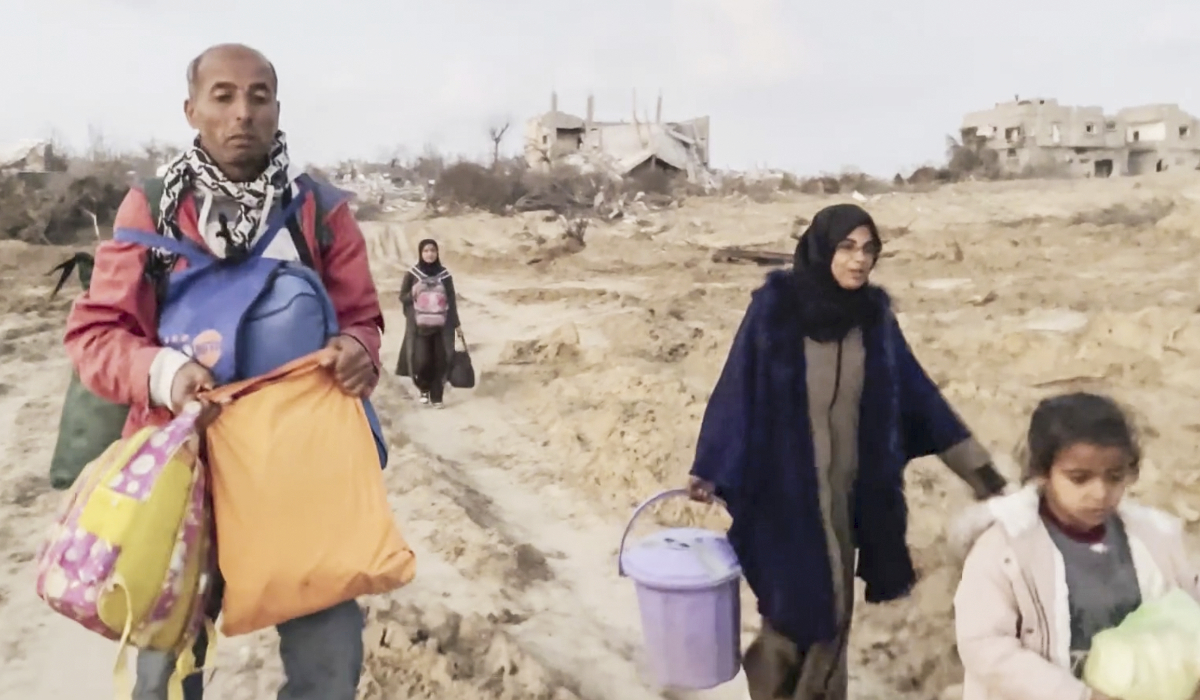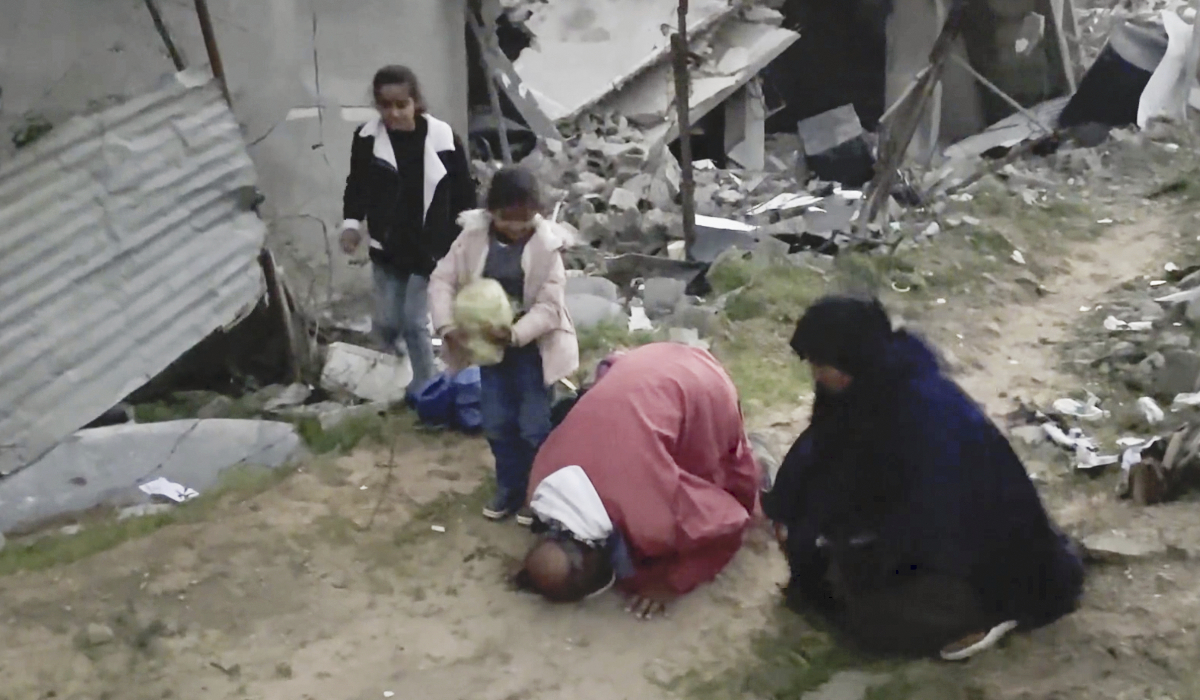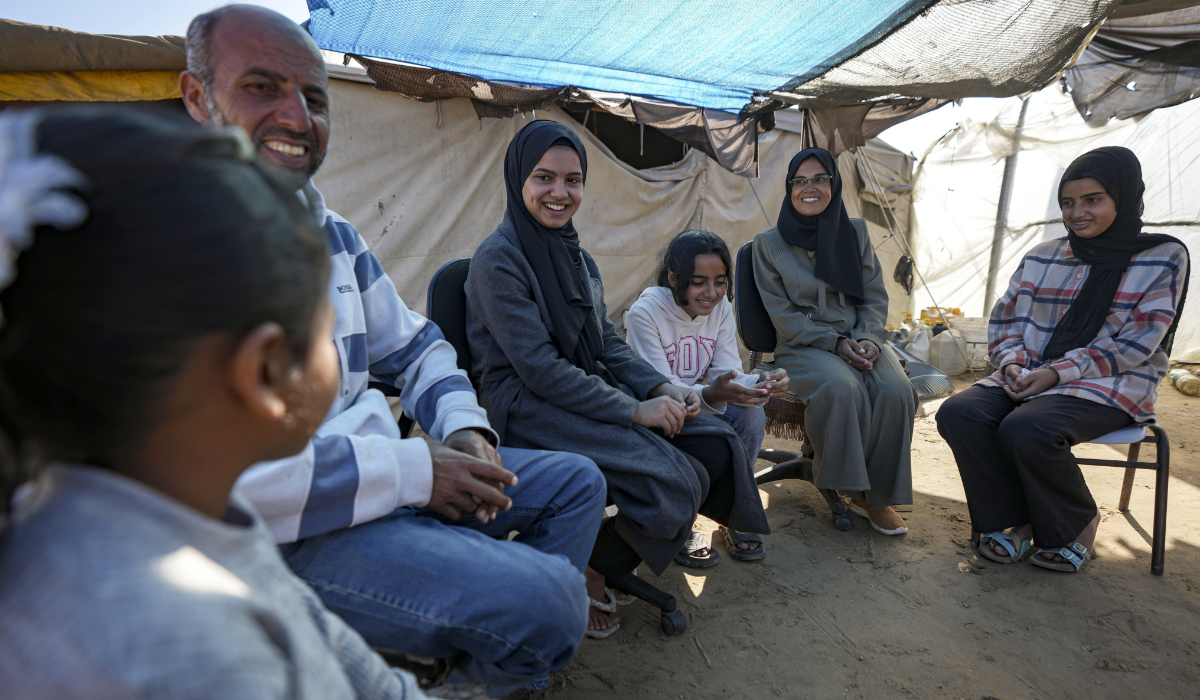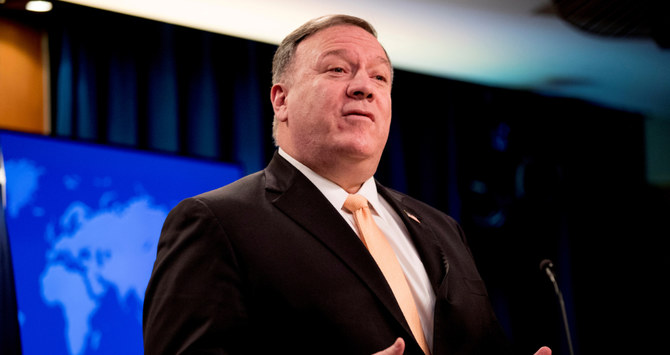WASHINGTON: The United States believes Iran’s Ministry of Intelligence and Security was directly involved in the killing of an Iranian dissident last November in Turkey, a senior administration official told Reuters on Wednesday.
Masoud Molavi Vardanjani was shot dead on an Istanbul street on Nov. 14, 2019. Citing Turkish officials, Reuters last week reported that two intelligence officers in Iran’s consulate in Istanbul had instigated his killing.
“Given Iran’s history of targeted assassinations of Iranian dissidents and the methods used in Turkey, the United States government believes that Iran’s Ministry of Intelligence and Security (MOIS) was directly involved in Vardanjani’s killing,” a senior administration official told Reuters.
The United States had not previously disclosed its assessment on who might have been behind the incident.
A week after the killing, US Secretary of State Mike Pompeo had described it as “another tragic example in a long string of suspected Iran-backed assassination attempts” of Iranian dissidents. He had not elaborated further.
Late on Wednesday, Pompeo in a tweet said he found disturbing the reports that Iranian diplomats were involved in the killing of the dissident, but that they were “fully consistent” with their assignments.
“Iran’s ‘diplomats’ are agents of terror and have conducted multiple assassinations and bomb plots in Europe over the past decade,” Pompeo said.
A police report by the Turkish authorities into the killing, published two weeks ago, said Vardanjani had an “unusual profile.” It said he had worked in cybersecurity at Iran’s Defense Ministry and had become a vocal critic of the Iranian authorities.
Turkish authorities did not publicly accuse the Iranian government of involvement at the time, but the Turkish officials last week told Reuters that Ankara would now raise Vardanjani’s killing with Iran.
The US assessment comes amid its “maximum pressure” campaign against Tehran, through which President Donald Trump aims to force Iran to limit its missile program and curb its use of proxy forces in Iraq, Yemen and Lebanon.
Tensions between Washington and Tehran have remained high since Trump in 2018 unilaterally pulled out of a 2015 nuclear deal to limit Iran’s nuclear program.
In recent weeks, the United States has repeatedly tightened sanctions on Iran, despite calls from Iranian authorities, the United Nations and China asking it to ease them as the Islamic Republic became the hardest-hit nation in the Middle East by the coronavirus pandemic.
US believes Iran was ‘directly involved’ in killing of Iranian dissident in Turkey
https://arab.news/bpvrm
US believes Iran was ‘directly involved’ in killing of Iranian dissident in Turkey

- Pompeo: “Another tragic example in a long string of suspected Iran-backed assassination attempts”
The discovery of brutal mass graves in Syria reveals Assad’s legacy of horror

- Since Nov. 28, the White Helmets have uncovered “more than 780 bodies, most of unknown identity,” Abed Al-Rahman Mawwas, a member of the rescue service, told The Associated Press
DAMASCUS, Syria: The charred remains of at least 26 victims of the Bashar Assad government were located Tuesday by Syrian civil defense workers in two separate basements in rural Damascus.
The discovery adds to the growing tally of mass graves unearthed since the fall of the Assad government in December. The remains, which are believed to include men, women and children, showed evidence of gunshot wounds and burning.
Members of Syria’s White Helmets, a volunteer civil defense group, exhumed the fragmented, weathered skeletal remains from the basement of two properties in the town of Sbeneh, southwest of the capital. Wearing hazmat suits, they carefully logged and coded each set of remains before placing them into body bags, which were then loaded onto trucks for transport.
Since Nov. 28, the White Helmets have uncovered “more than 780 bodies, most of unknown identity,” Abed Al-Rahman Mawwas, a member of the rescue service, told The Associated Press. He said many were found in shallow graves uncovered by locals or dug up by animals. The bodies are transferred to forensics doctors to determine their identities, time of death and cause of death, as well as to match them with possible family members.
“Of course, this takes years of work,” he said.
Mohammad Al-Herafe, a resident of one of the buildings where remains were uncovered, said the stench of decomposing bodies was overwhelming when his family returned to Sbeneh in 2016 after fleeing because of fighting in the area during the country’s uprising-turned-civil war that began in 2011.
He said they found the bodies in the basement but chose not to report it out of fear of government reprisals. “We could not tell the regime about it because we know that the regime did this.”
The Assad government, which ruled Syria for over two decades, employed airstrikes on civilian areas, torture, executions and mass imprisonment, to maintain control over Syria and suppress opposition groups during the country’s 13-year civil war.
Ammar Al-Salmo, another Civil Defense member dispatched to the second basement site, said further investigation is needed to identify the victims.
“We need testimonies from residents and others who might know who stayed behind when the fighting intensified in 2013,” he told the AP.
Mohammad Shebat, who lived in the second building where bodies were found, said he left the neighborhood in 2012 and returned in 2020 when he and his neighbors discovered the bodies and demanded their removal. But no one cooperated, he said.
Shebat believes the victims were civilians who fled the nearby Al-Assali neighborhood when the fighting escalated and the Assad government imposed a siege in 2013. He said forces of the former government used to “trap people in basements, burn them with tires and leave their bodies.”
“There are several basements like this, full of skeletons,” he said.
In a report released Monday, the United Nations Syria Commission of Inquiry said that mass graves can be used as evidence to uncover the fates of thousands of missing detainees.
The report, spanning 14 years of investigations and drawing on over 2,000 witness testimonies, including more than 550 survivors of torture, detailed how detainees in Syria’s notorious prisons “suffering from torture injuries, malnutrition, disease and illness, were left to die slowly, in agonizing pain, or were taken away to be executed.”
Assad’s fall on Dec. 8 drove hundreds of families to scour prisons and morgues in desperate search of loved ones. While many were freed after years of imprisonment, thousands remain missing, their fates still unknown.
The UN commission has said that forensic exhumations of mass graves, as well as safeguarding evidence, archives and crime sites, may offer grieving families a chance to learn the truth.
The commission was established in 2011 by the Human Rights Council to investigate Syria’s alleged violations of international human rights law.
The UN report documented brutal methods of torture by the former government, including “severe beatings, electric shocks, burning, pulling out nails, damaging teeth, rape, sexual violence including mutilation, prolonged stress positions, deliberate neglect and denial of medical care, exacerbating wounds and psychological torture.”
“For Syrians who did not find their loved ones among the freed, this evidence, alongside testimonies of freed detainees, may be their best hope to uncover the truth about missing relatives,” said Commissioner Lynn Welchman.
This is what one family in Gaza returned home to after 15 months of war

- Since Monday, more than 375,000 Palestinians have made their way back to northern Gaza, many of them on foot
- Over 15 months, Israel launched repeated offensives in Gaza City and surrounding areas, trying to crush Hamas fighters who often operated in densely populated neighborhoods
BEIT LAHIYA, Gaza Strip: The grove of orange, olive and palm trees that once stood in front of Ne’man Abu Jarad’s house was bulldozed away. The roses and jasmine flowers on the roof and in the garden, which he lovingly watered so his family could enjoy their fragrance, were also gone.
The house itself was a damaged, hollowed-out shell. But after 15 months of brutal war, it stood.
At the sight of it Monday, Ne’man; his wife, Majida; and three of their six daughters dropped the bags they had been lugging since dawn, fell to their knees and prayed, whispering, “Praise be to God, praise be to God.” The sunset blazed orange in the sky above.

After 477 days of hell — fleeing the length of the Gaza Strip, hiding from bombardment, sweltering in tents, scrounging for food and water, losing their possessions – they had finally returned home.
“Our joy is unmatched by any other, not the joy of success, of a marriage or of a birth,” Majida said. “This is a joy that can’t be described in words, in writing or in any expression.”
In October, at the one-year anniversary of the Gaza war, The Associated Press traced the Abu Jarad family’s flight around the territory seeking safety. They were eight of the roughly 1.8 million Palestinians driven from their homes by Israel’s massive campaign of retaliation against Hamas following the militants’ Oct. 7, 2023, attack on southern Israel.

Like many families, they were displaced multiple times. Ne’man, Majida and their daughters – the youngest in first grade, the oldest in her early 20s – fled their home at the northernmost part of Gaza hours after Israeli bombardment began. They would move seven times in total, fleeing all the way to Gaza’s southernmost city Rafah.
Each time, their conditions worsened. By October 2024, they were languishing in a sprawling tent camp near the southern city of Khan Younis, exhausted and depressed, with little hope of seeing home again.
Hope suddenly revived when Israel and Hamas reached a long-awaited ceasefire earlier this month. On Jan. 19, the first day of the truce, Majida began packing up their clothes, food and other belongings. On Sunday, the announcement came: The next day, Israeli troops would pull back from two main roads, allowing Palestinians to return to the north.

Since Monday, more than 375,000 Palestinians have made their way back to northern Gaza, many of them on foot.
The Abu Jarads set off Monday from their tent at 5 a.m., loading bags stuffed with their belongings into a car. The driver took them to the edge of the Netzarim Corridor, the swath of land across Gaza that Israeli forces had turned into a military zone that – until this week – had barred any returns north.
There, they got out and walked, joining the massive crowds making their way down the coastal road. For around 8 kilometers (5 miles), the 49-year-old Ne’eman carried one sack on his back, held another in his arms, and two bags dangled from the crooks of his elbows. They stopped frequently, to rest, rearrange bags, and drop items along the way.
“The road is really hard,” Majida told an AP journalist who accompanied them on the journey. “But our joy for the return makes us forget we’re tired. Every meter we walk, our joy gives us strength to continue.”
Reaching the southern outskirts of Gaza City, they hired a van. But it quickly ran out of fuel, and they waited more than an hour before they found another one. Driving through the city, they got their first look at the war’s devastating impact in the north.
Over 15 months, Israel launched repeated offensives in Gaza City and surrounding areas, trying to crush Hamas fighters who often operated in densely populated neighborhoods. After each assault, militants would regroup, and a new assault would follow.
The van made its way down city streets strewn with rubble, lined with buildings that were damaged husks or had been reduced to piles of concrete.
“They destroyed even more in this area,” Ne’man said, staring out the window as they left Gaza City and entered the towns of Beit Lahiya and Beit Hanoun – scene of one of Israel’s most ferocious offensives in the last three months before the ceasefire.
As the sun began to set, the van dropped them off at the edge of their neighborhood. Ne’man’s daughters stood in shock. One gaped, her hands on her cheeks. Her sister pointed out at the field of flattened houses. They walked the last few hundred meters, over a landscape of rutted, bulldozed dirt.
Trudging as fast as he could under the bags draping from his body, Ne’man — a taxi driver before the war — repeated over and over in excitement, “God is great, God is great. To God is all thanks.”
Their home still stood, sort of — a hollow shell in a row of damaged buildings. After they prayed in front of it, Ne’eman leaned on the bare concrete wall of his house and kissed it. To his joy he discovered that one flowering vine in front of the house had miraculously survived. He immediately set about examining and arranging its tendrils.
One of the girls dashed in through the now doorless front entrance. “Oh Lord, oh Lord,” her gasps came from the darkness inside. Then she began to cry, as if all the shock, sorrow, happiness and relief were gushing out of her.
Like others streaming back into northern Gaza, the Abu Jarads will face the question of how to survive in the ruins of cities decimated by war. Water and food remain scarce, leaving the population still reliant on humanitarian aid, which is being ramped up under the ceasefire. There is no electricity. Tens of thousands are homeless.
Adjoining the Abu Jarads’ home, Ne’man’s brother’s three-story house is now a pile of concrete wreckage after it was destroyed by an airstrike. It damaged Ne’man’s home as it collapsed, “but, thank God, there is an undamaged room which we will live in,” he said. He vows to repair what is damaged.
Grief from the war lays heavily on him, Ne’man said. His uncle lost his home, and several of his uncle’s children were killed. Several of his neighbors’ homes were destroyed. Ne’man said he will have to walk several kilometers (miles) to find water, just like he did in the displacement camps.
“Once again, we will live through suffering and fatigue.”
Russia, Syria to hold further talks on Russian military bases in Syria, TASS reports

DAMASCUS: Russia and Syria will hold further talks regarding Russian military bases in Syria, Russia’s news agencies reported late on Tuesday, citing Russian Deputy Foreign Minister Mikhail Bogdanov as telling journalists after his talks with Syrian officials.
“This issue requires additional negotiations,” TASS news agency cited Bogdanov as saying. Bogdanov is heading Russia’s delegation to Damascus for the first time since Moscow’s ally President Bashar Assad was toppled.
He added that so far there have been no changes to the presence of Russian military bases in the country.
New backlash over Trump plan to move people out of Gaza

- “We emphasize that Jordan’s national security dictates that the Palestinians must remain on their land and that the Palestinian people must not be subjected to any kind of forced displacement whatsoever,” Jordanian’s spokesman Mohammad Momani said
- Israel has killed at least 47,317 people in Gaza, the majority civilians according to figures from the Hamas-run territory’s health ministry that the UN considers reliable
JERUSALEM: An idea floated by US President Donald Trump to move Gazans to Egypt or Jordan faced a renewed backlash Tuesday as hundreds of thousands of Gazans displaced by the Israel-Hamas war returned to their devastated neighborhoods.
A fragile ceasefire and hostage release deal took effect earlier this month, intended to end more than 15 months of war that began with Hamas’s October 7, 2023 attack on Israel.
After the ceasefire came into force, Trump touted a plan to “clean out” the Gaza Strip, reiterating the idea on Monday as he called for Palestinians to move to “safer” locations such as Egypt or Jordan.
The US president, who has repeatedly claimed credit for sealing the truce deal after months of fruitless negotiations, also said he would meet Israeli Prime Minister Benjamin Netanyahu in Washington “very soon.”
Jordan, which has a tumultuous history with Palestinian movements, on Tuesday renewed its rejection of Trump’s proposal.
“We emphasize that Jordan’s national security dictates that the Palestinians must remain on their land and that the Palestinian people must not be subjected to any kind of forced displacement whatsoever,” Jordanian government spokesman Mohammad Momani said.
Qatar, which played a leading role in the truce mediation, on Tuesday said that it often did not see “eye to eye” with its allies, including the United States.
“Our position has always been clear to the necessity of the Palestinian people receiving their rights, and that the two-state solution is the only path forward,” Qatar’s foreign ministry spokesman Majed Al-Ansari said.
Following reports that Trump had spoken with Egyptian President Abdel Fattah El-Sisi at the weekend, Cairo said there had been no such phone call.
“A senior official source denied what some media outlets reported about a phone call between the Egyptian and American presidents,” Egypt’s state information service said.
On Monday, Trump reportedly said the pair had spoken, saying of El-Sisi: “I wish he would take some (Palestinians).”
After Trump first floated the idea, Egypt rejected the forced displacement of Gazans, expressing its “continued support for the steadfastness of the Palestinian people on their land.”
France, another US ally, on Tuesday said any forced displacement of Gazans would be “unacceptable.”
It would also be a “destabilization factor (for) our close allies Egypt and Jordan,” a French foreign ministry spokesman said.
Moving Gaza’s 2.4 million people could be done “temporarily or could be long term,” Trump said on Saturday.
Israel’s far-right Finance Minister Bezalel Smotrich said he was working with the prime minister “to prepare an operational plan to ensure that President Trump’s vision is realized.”
Smotrich, who opposed the ceasefire deal, did not provide any details on the purported plan.
For Palestinians, any attempts to force them from Gaza would evoke dark memories of what the Arab world calls the “Nakba,” or catastrophe — the mass displacement of Palestinians during Israel’s creation in 1948.
“We say to Trump and the whole world: we will not leave Palestine or Gaza, no matter what happens,” said displaced Gazan Rashad Al-Naji.
Almost all of the Gaza Strip’s inhabitants were displaced at least once by the war that has levelled much of the Palestinian territory.
The ceasefire hinges on the release during a first phase of 33 Israeli hostages held in Gaza in exchange for around 1,900 Palestinians held in Israeli jails.
On Monday, Israeli government spokesman David Mencer said eight of the hostages due for release in the first phase are dead.
Since the truce began on January 19, seven Israeli women have been freed, as have about 290 Palestinians held in Israeli prisons.
On Monday, after Hamas and Israel agreed over the release of six hostages this week, “more than 300,000 displaced” Gazans were able to return to the north, according to the Hamas government media office.
“I’m happy to be back at my home,” said Saif Al-Din Qazaat, who returned to northern Gaza but had to sleep in a tent next to the ruins of his destroyed house.
“I kept a fire burning all night near the kids to keep them warm... (they) slept peacefully despite the cold, but we don’t have enough blankets,” the 41-year-old told AFP.
Hamas’s October 7 attack on Israel resulted in the deaths of 1,210 people, mostly civilians, according to an AFP tally based on official Israeli figures.
During the attack, militants took into Gaza 251 hostages. Eighty-seven remain in the territory, including dozens Israel says are dead.
Israel’s retaliatory offensive has killed at least 47,317 people in Gaza, the majority civilians, according to figures from the Hamas-run territory’s health ministry that the UN considers reliable.
“In terms of the death toll, yes, we do have confidence. But let’s not forget, the official death toll given by the Ministry of Health, is deaths accounted in morgues and in hospitals, so in official facilities,” World Health Organization spokesman Christian Lindmeier said Tuesday.
“As people go back to their houses, as they will start looking for their loved ones under the rubble, this casualty figure is expected to increase,” he added.
More than 376,000 return to north Gaza since Monday: UN

- OCHA: Over 376,000 people are estimated to have returned to their places of origin in northern Gaza
- “This is our homeland and we have to go back,” said one displaced woman, Ola Saleh
UNITED NATIONS: More than 376,000 Palestinians displaced by the war between Israel and Hamas have returned to northern Gaza, the UN’s humanitarian body OCHA said Tuesday.
“Over 376,000 people are estimated to have returned to their places of origin in northern Gaza, following the withdrawal of Israeli forces from the two main roads along the Netzarim corridor” that leads into the north, OCHA said in a humanitarian update.
Opinion
This section contains relevant reference points, placed in (Opinion field)
Many Palestinians said they were happy to return, even though their homes in northern Gaza are likely damaged or destroyed. Others said the feeling was bittersweet, as nearly everyone has friends or relatives killed by Israel during the 15-month war against Hamas.
“This is our homeland and we have to go back,” said one displaced woman, Ola Saleh.
The ceasefire is aimed at ending the war and releasing dozens of hostages and hundreds of Palestinians imprisoned or detained by Israel.



















